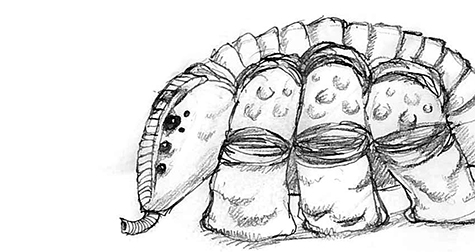
The team was sponsored by Fracesc Ferrer, PhD, assistant professor of physics.
A Washington University in St. Louis team of juniors in Arts & Sciences learned last month that they had won a gold medal for their physics-based analysis of a problem during the international University Physics Competition, held in November.
They were asked to analyze the following scenario using principles of physics and write a formal paper describing their conclusions. The problem:
Asuume a planet has been found whose mass is eight times that of Earth while its radius is twice that of Earth. The average surface temperature on the planet is 250 K (Kelvin). A four-legged animal has evolved to live on the equator of this planet. Produce a physics-based analysis on how life on this planet might be similar to, or different from, creatures that evolved on Earth.
After due consideration, the team members wrote:
“We concluded that bone width would increase by approximately 30 percent, and bone length would decrease, yielding more compact animals with shorter extremities. Leg bones would meet the body at shallower angles, making legs straighter. Most organs, including the heart, would increase in size due to an approximate doubling of blood volume per unit mass, and capillary radius would increase. Due to increased surface gravity, animals would have to expend more energy to reach efficient modes of locomotion than they do on Earth, decreasing their speed.”

The WUSTL team’s entry was chosen from a field of 69.
The University Physics Competition is an international contest for
undergraduate students, who work in teams of three at their home
colleges and universities all over the world. They spend a weekend in
November, 48 hours, analyzing a real-world scenario using the principles
of physics and writing a formal paper describing their work.